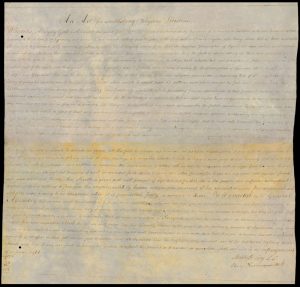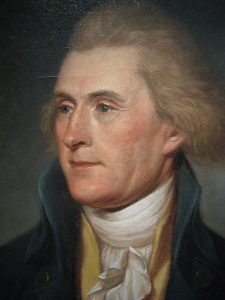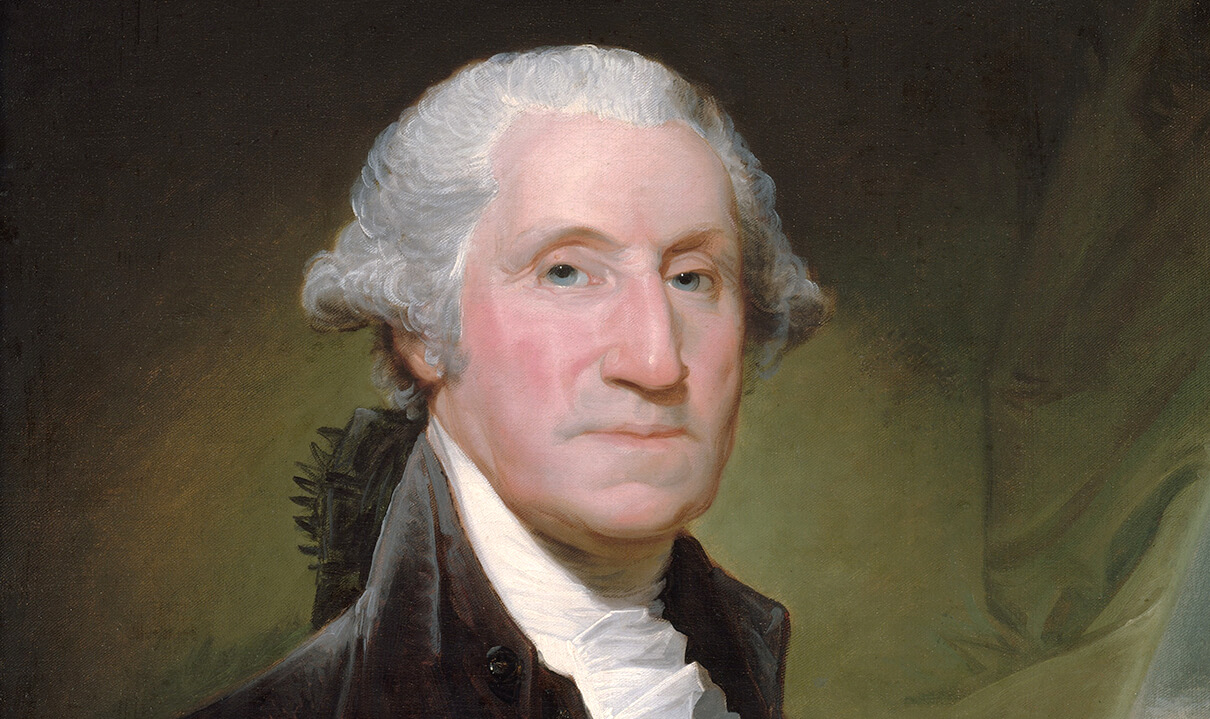 January 16, 1786, was the day that the Virginia Assembly adopted the Act for Establishing Religious Freedom, finally ending the official state-established church in Virginia. It provided that (1) all individuals would be free from any punishment for not conforming to state-established religious mandates, and (2) one’s religious affiliation would no longer affect the civil privileges he could enjoy 1. In short, in Virginia it legally secured religious toleration and protection for the right of religious conscience.
January 16, 1786, was the day that the Virginia Assembly adopted the Act for Establishing Religious Freedom, finally ending the official state-established church in Virginia. It provided that (1) all individuals would be free from any punishment for not conforming to state-established religious mandates, and (2) one’s religious affiliation would no longer affect the civil privileges he could enjoy 1. In short, in Virginia it legally secured religious toleration and protection for the right of religious conscience.
The Virginia Act, drafted by Thomas Jefferson in 1777, originally failed to pass when brought before the State Assembly in  1779 2. James Madison later reintroduced the measure, and it was finally enacted in 1786. Jefferson considered it one of his three greatest achievements, ranking it along with penning the Declaration of Independence and establishing the University of Virginia.
1779 2. James Madison later reintroduced the measure, and it was finally enacted in 1786. Jefferson considered it one of his three greatest achievements, ranking it along with penning the Declaration of Independence and establishing the University of Virginia.
This act was reflective of the attitude that had developed across much of America toward securing full religious liberty for all — an attitude later embodied in the federal Bill of Rights’ 1st Amendment to the Constitution.
Each year, in commemoration of religious freedom (one of the most important of our freedoms), the President proclaims January 16th to be Religious Freedom Day 3. Religious Freedom Sunday is commemorated the Sunday before Religious Freedom Day, and this year, Religious Freedom Sunday falls on January 11th.
Gateways to Better Education have teamed up to provide ways for Christians and churches to celebrate this important day and to participate in encouraging the free exercise of religion. But don’t stop with just celebrating Religious Freedom Day at your church, make sure the schools in your area also recognize this special holiday. (Gateways to Better Education has a guidebook to help you enlighten those in the education system about this important day.)
Happy Religious Freedom Sunday!
Endnotes
1 https://www.virginiamemory.com/docs/ReligiousFree.pdf
2 https://www.virginiamemory.com/online_classroom/shaping_the_constitution/doc/religious_freedom
3 https://religiousfreedomday.com/. See, for example, proclamations by George H.W. Bush in 1992 (https://www.presidency.ucsb.edu/node/268664); William Clinton in 1996 (https://www.presidency.ucsb.edu/node/222064); George W. Bush in 2003 (https://www.presidency.ucsb.edu/node/212361); and Barack Obama in 2011 (https://www.presidency.ucsb.edu/node/289040).
Still looking for answers? Visit our FAQ page
More Resources
Know the Truth and Protect Your Freedoms.
Still looking for answers? Visit our FAQ page
Stay Informed with the Latest Resources
Enter your email address to receive our regular newsletter, with important information and updates right in your inbox!








